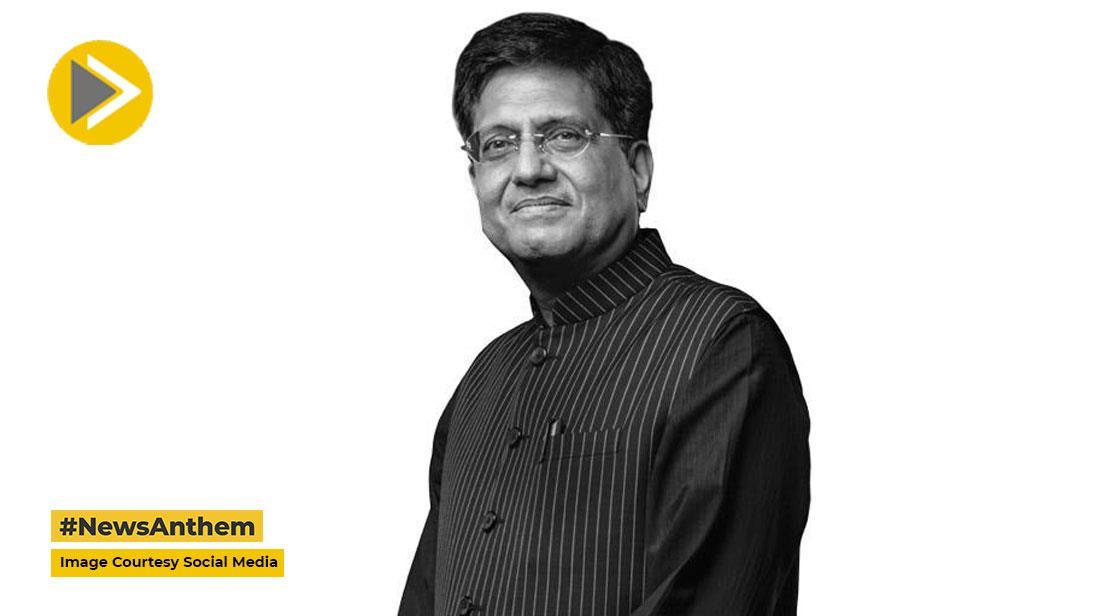No More EV Subsidies Needed, Government and Companies Agree: Piyush Goyal

News Synopsis
Commerce and Industry Minister Piyush Goyal has confirmed that both the Indian government and Electric Vehicle (EV) manufacturers are in agreement that no new subsidies are needed beyond those that are already in place.
Speaking at a meeting with representatives from the EV industry in New Delhi on January 3, Goyal emphasized the current benefits for EV manufacturers, such as reduced battery costs and improved charging infrastructure, making further subsidies unnecessary.
Industry Discussions on Charging Infrastructure and Swapping
The meeting focused on key issues surrounding the development of battery charging and swapping infrastructure, which are critical for the widespread adoption of electric vehicles. Participating in the discussions were representatives from multiple government departments, including Ministries of Heavy Industries, Power, NITI Aayog, Bureau of Indian Standards (BIS), and the Department for Promotion of Industry and Internal Trade (DPIIT).
Industry leaders from prominent companies like Amara Raja Advanced Cell Technologies, SUN Mobility, TVS Motor Company, Ather Energy, Mahindra & Mahindra Ltd, Hero MotoCorp, and Bajaj Auto were also in attendance.
Battery Swapping Market Growth Potential
One of the main topics covered in the meeting was the significant growth potential of the battery swapping sector, which is expected to reach a value of $20 billion by 2030. Goyal noted that feedback from the auto and battery industry regarding battery swapping would be provided by January 6.
He also stressed that the government had left it to industry players to determine their own business models, acknowledging the varying levels of innovation and research and development among companies.
Government Guidelines for Charging Stations
During the meeting, Piyush Goyal highlighted the guidelines issued by the Petroleum and Explosives Safety Organization (PESO) for setting up charging stations at gas stations. The government’s goal is to encourage self-regulation in the sector, making it easier for Resident Welfare Associations (RWAs), office complexes, and commercial establishments to set up their own charging infrastructure. The vision is to have battery swapping and charging stations available at every petrol pump and CNG station across the country.
BIS Standards and Upcoming Initiatives
The Bureau of Indian Standards (BIS) has already released draft standards for electric two-wheelers, and feedback is expected by January 6. The BIS had earlier notified standards for three-wheelers and four-wheelers. Additionally, the government is preparing to introduce new EV policies, including manufacturing incentives, as part of India's push for electric mobility.
Under the second phase of the Faster Adoption and Manufacturing of Hybrid and Electric Vehicles (FAME-II) scheme, nearly 11,000 public charging stations are set to be installed, further supporting EV adoption across the country.
Electric Mobility Schemes and Support
Another significant initiative in the electric mobility landscape is the PM E-DRIVE scheme, which offers subsidies for various EV segments, including electric buses, three-wheelers, e-rickshaws, and electric two-wheelers. This scheme is part of the broader strategy to accelerate the shift toward electric vehicles and address the infrastructure gaps.
PLI Scheme for EVs and Auto Components
India's electric vehicle sector is further supported by the Production-Linked Incentive (PLI) scheme for automobiles and auto components, which was approved in 2021. The scheme has an outlay of over ₹25,938 crore over five years, with a focus on strengthening the local manufacturing ecosystem for EVs and their components.
Maxson Lewis Weighs in on Subsidy Needs
Maxson Lewis, Founder and CEO of Magenta Mobility, echoed the views of Minister Piyush Goyal, agreeing that no new subsidies are necessary. However, he stressed that existing subsidies should not be pulled back. Lewis pointed out the need for the government to strategically allocate subsidies to areas where they can have the most impact, particularly with respect to the development of charging infrastructure.
He added that the passenger segment may not be the primary focus when it comes to subsidy allocation, as the priority should be placed on meeting the infrastructure needs of electric vehicles on the highways.
Conclusion: Strategic Approach to EV Subsidies
Piyush Goyal's statements reflect a strategic and measured approach to supporting India's electric vehicle transition. While new subsidies may not be required, the focus will remain on enhancing infrastructure, promoting local manufacturing, and ensuring that existing incentives continue to drive the adoption of electric mobility. The collaboration between government bodies and industry stakeholders will be crucial in ensuring the success of these efforts as the EV sector continues to evolve.









